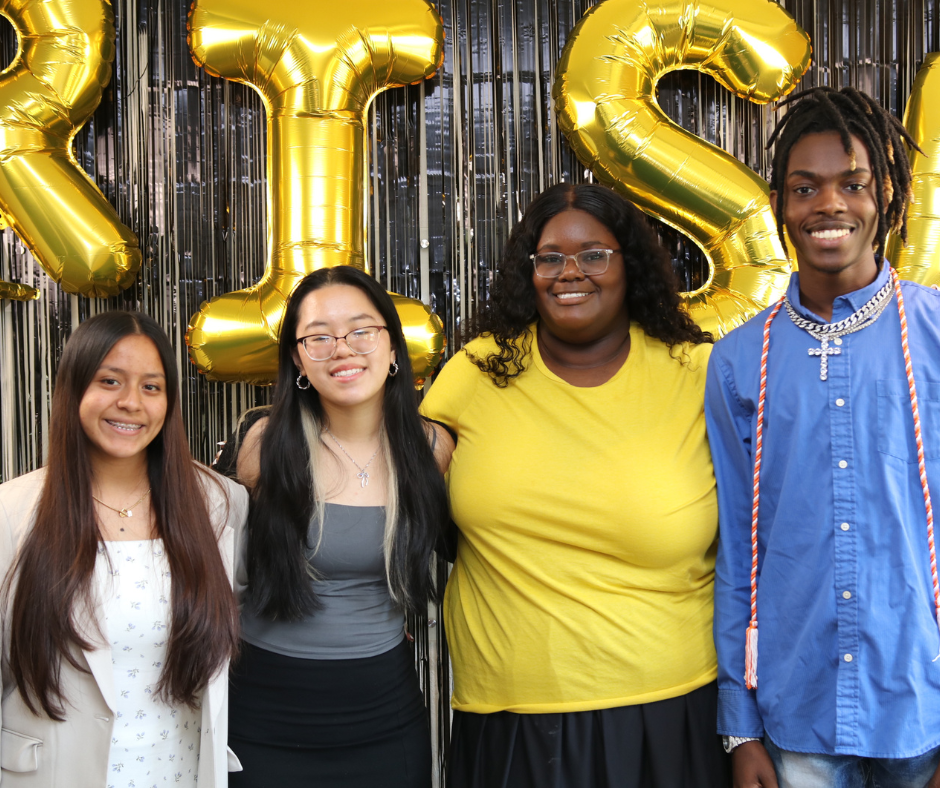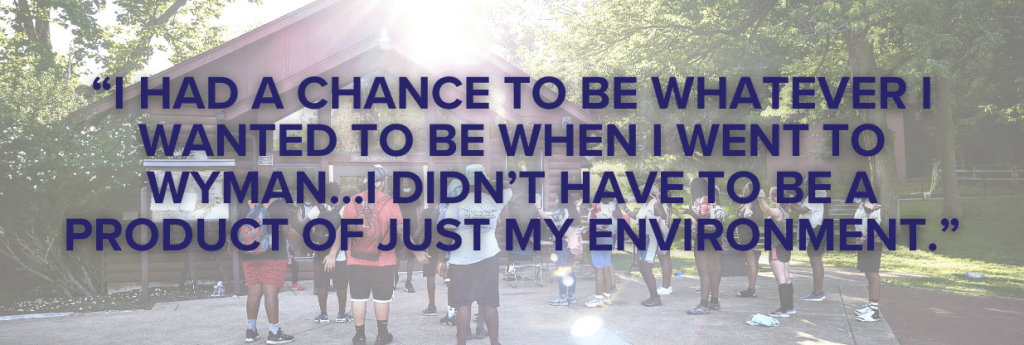How Wyman Leaders Shapes Futures
By Nicki Thomson, PhD, Senior Director of Research and Learning, Wyman & Florian Sichling, PhD, Assistant Professor of Social Work, University of Missouri-St. Louis
“I had a chance to be whatever I wanted to be when I went to Wyman…I didn’t have to be a product of just my environment.”
The Wyman Leaders Program is a multi-year, evidence-informed program supporting young people in St. Louis on their journeys toward a postsecondary educational path and career. The program utilizes intensive summer sessions, events and workshops, mentoring, and strong external partnerships to foster teens’ life and leadership skills and postsecondary access and success. Most young people in the program (68%) live in households earning less than $50,000 per year and a majority (72%) have parents who did not receive a 4-year college degree. A new study explored how the program impacts participants over time – especially their success in postsecondary education – and what makes those outcomes possible.
Specifically, the project examined:
- Whether Wyman Leaders participants achieve greater educational attainment than peers from similar schools and socioeconomic backgrounds.
- The mechanisms through which the Wyman Leaders Program leads to these outcomes.
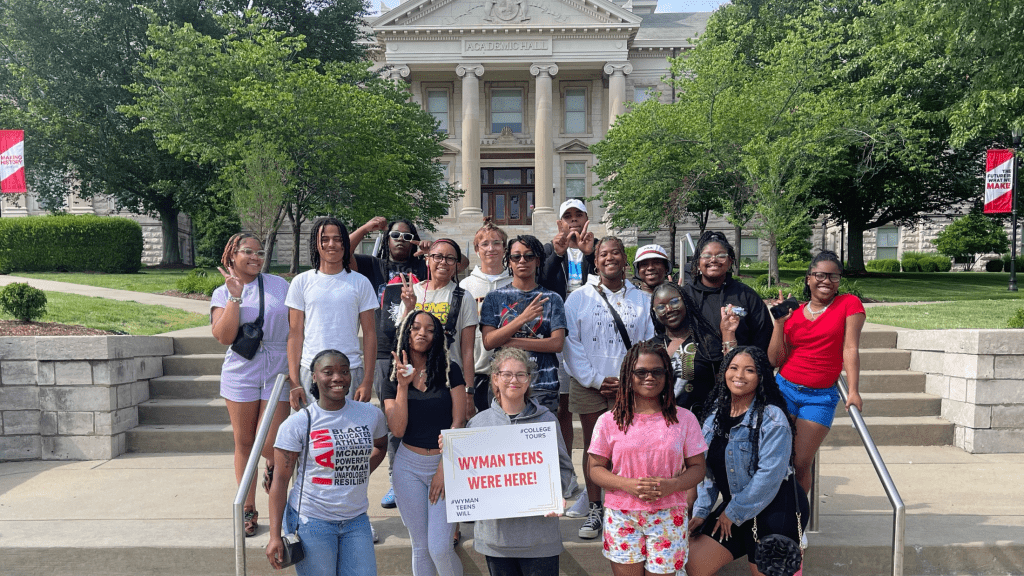
Why It Matters
We know mentoring and youth programs can change lives – particularly for young people of color facing systemic barriers. But many studies look only at short-term outcomes and we know very little about what makes these programs effective or how they shape long-term trajectories. This study helps fill that gap.
What We Did
- Educational Outcomes
Using data from the National Student Clearinghouse, we compared 194 Wyman Leaders alumni (graduating high school in 2006–2016) to 30,000+ peers from the same schools and time periods. This builds on earlier findings showing Wyman participants enroll in and complete college at higher rates than national averages for similar young people. - Understanding the “How”
We also conducted in-depth interviews with 82 alumni who completed the program from 2006 through 2018. These conversations explored their experiences, decision-making during critical life moments, and how the Wyman Leaders Program impacted their lives overall. Over 1,000 pages of transcripts were analyzed to uncover common themes.
What We Found: Powerful and Lasting Impact
Postsecondary Enrollment and Completion
Wyman Leaders alumni outperformed their peers in both postsecondary enrollment and completion. This finding was especially pronounced among those who graduated from high schools where over 50% of students were eligible for free/reduced price lunch as well as graduates from schools where more than 40% of students identified as Black or Hispanic.
- 80% of Wyman alumni enrolled in postsecondary education within a year of high school, compared to 55% of their peers.
- 89% enrolled at any point, versus 62% of peers.
- 57% of Wyman alumni completed a degree or credential within 6 years, compared to 45% of peers.
- Among students from schools serving predominantly underrepresented and lower income communities, Wyman alumni had completion rates 14–17 percentage points higher than their peers.
Wyman alumni were also more likely to graduate from public 4-year nonprofit colleges, suggesting access to diverse and in-demand degree and career options with potentially limited student loan debt.
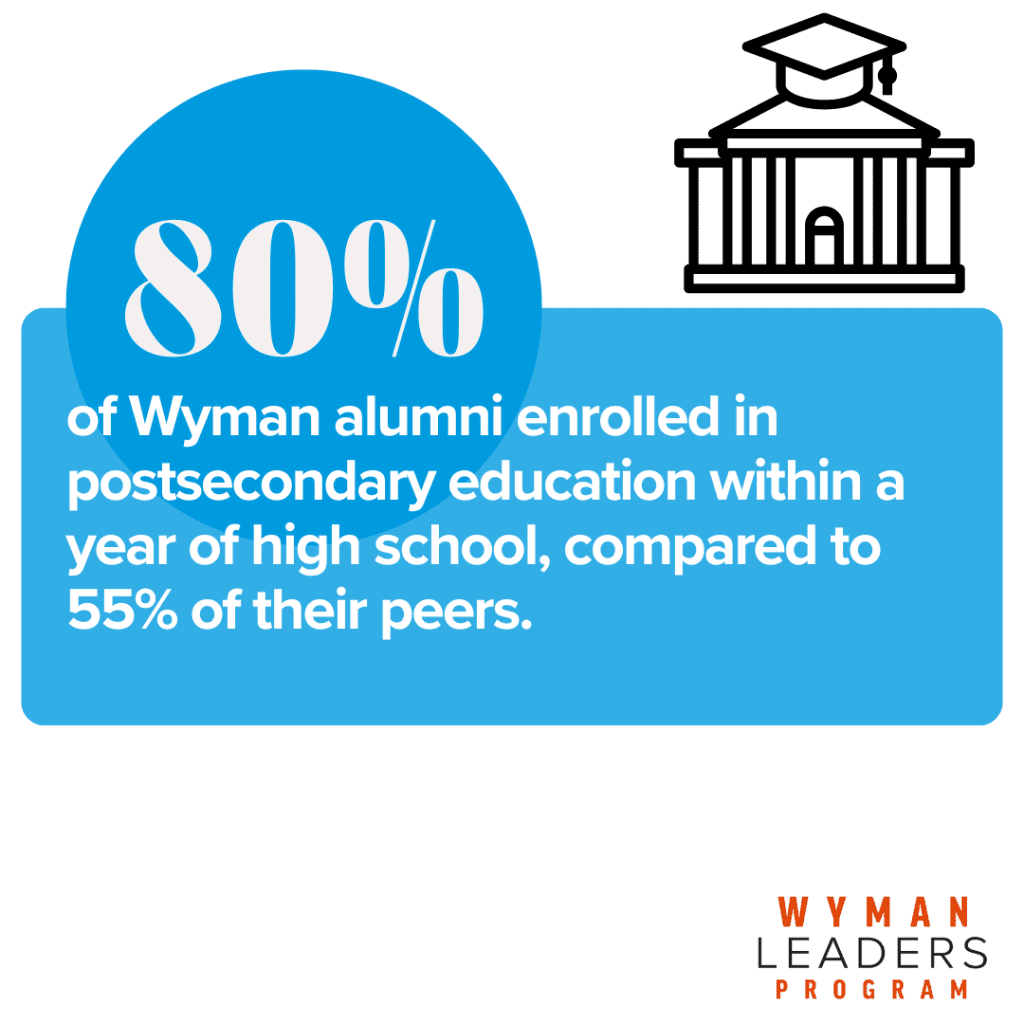
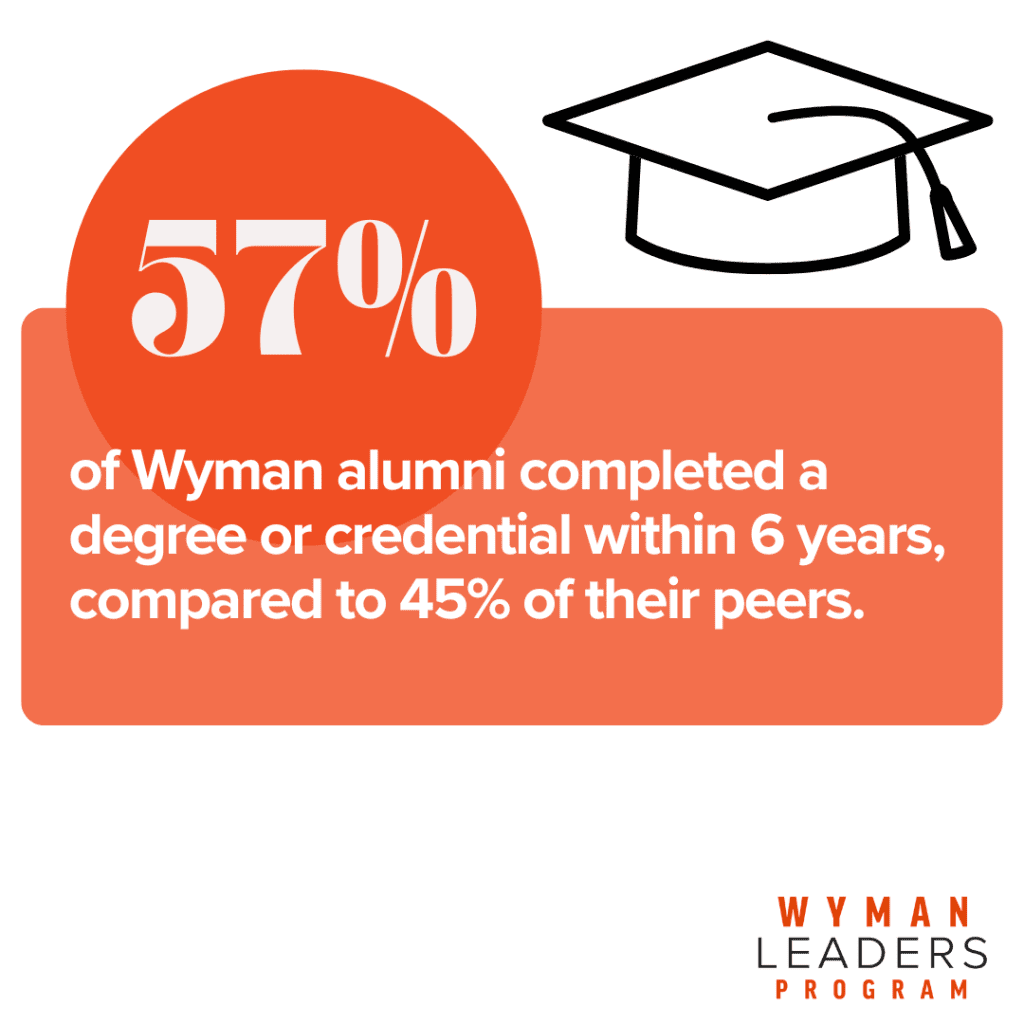
How the Wyman Leaders Program makes the Difference
Our interviews with 82 alumni revealed that two core mechanisms drive the program’s long-term impact: social capital and individual development.
- Social Capital: Support Beyond the Family Network
Alumni formed lasting relationships with Wyman mentors and peers who guided them through key transitions. For many first-generation college students, this meant access to critical “college knowledge” and emotional support that may not have been available within their families.
“I didn’t even know social work was a thing, until one of my mentors at Wyman was like, it sounds like you want to do social work and I’m like, I don’t even know what that is […] She broke it down she was like you could be a social worker.”
“They sent me care packages and I liked that a lot and you know it was a nice feeling to be thought of during that time [in college] when you can feel a little bit lost.”
- Personal Growth: Confidence, Leadership, and Voice
Alumni consistently described how camp and other program experiences helped them “come out of their shells,” learn to trust, take risks, and navigate social challenges. These weren’t just memories – they were formative lessons that shaped their adult identities.
“I just always did what I was told and I never tried to step out of that expected persona, that my parents, kind of put on to me. Being at Wyman, and learning that I am capable of making my own decisions, and I am capable of figuring things out for myself, led me to start making my own decisions and standing up for myself and standing up for those decisions.”
“I think the biggest challenge was learning to deal with people that are unlike people you’ve met before, people that are really different from you and temperaments and interest in life exposure, you know, […] But I definitely remember a few tense interactions with people and I think I was definitely better for it because I am really good with conflict. You stick a bunch of like teenage girls together in a cabin. It’s bound to happen.”
Why It Matters: Lessons for the Field
The Wyman Leaders Program doesn’t just help young people reach graduation – it is likely to influence a young person’s developmental trajectories well into early adulthood.
Even when compared to peers from the same high schools, Wyman alumni were significantly more likely to enroll in and complete postsecondary education. But numbers alone don’t tell the full story.
What truly sets Wyman apart is its “secret sauce”: powerful relationships and transformative experiences.
Our research shows that two things matter most:
- Relationships with trusted adults, like a consistent Wyman adult coach and camp counselors, who model what’s possible and provide guidance and support through college and career choices.
- Opportunities for growth – spaces to build confidence, confront fears, embrace new identities, and learn to navigate differences.
These elements combine to help young people imagine and pursue futures that might otherwise feel out of reach.
As the world becomes more complex and uncertain, this kind of deep, relational youth work is more important than ever. It’s not about offering all the answers – it’s about equipping young people with the tools to find their own.
